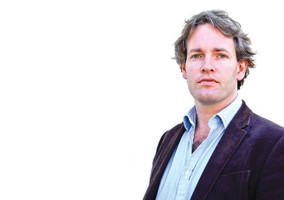Acevo spoke to Danny Sriskandarajah, secretary general of Civicus, as part of its 30th birthday celebrations to get him to expand on his article for Civil Society Futures, where he asks if it is the beginning of the end for the charity sector.
Danny, you’ve said that you think that this is the beginning of the end of the charitable sector as we know it, and that we need to find new ways of nurturing and supporting the next generation of social leaders. What do you think that might look like? What are those ways?
Well, I think the first thing to realise is that the assumptions we made about what each sector looks like, and therefore what good leadership in each sector of government, business and civil society looks like, will have to change.
In one way I think it’s going to relatively easy, which is we need effective leaders that can transcend these boundaries of sectors who can run an effective organisation using excellent business principles, but be clear about the social change or social good that they seek, be open and accountable.
So in some ways we want to be build that cross-sectoral or trans-sectoral leadership, but I think that there’s a peculiar set of challenges for those of us who lead organisations within civil society, non-profits, charities if you will, and that’s how do we make sure we can adapt our own organisation to this coming reality that the trust, the funding flows, the operating environment, the conditionalities facing charities in particular, are changing to an extent that if we don’t adapt, my fear is many a well-respected institution in civil society will go under.
You’ve talked about new models of democracy, that democracy will change, that democracy will look different. What do you think that will look like?
My understanding of what’s going on in terms of the rise of populism, the Brexit vote in the UK, is in a large part driven by the frustration that many people feel about a lack of voice in what is otherwise a well-functioning democracy. My hypothesis is that’s because we’ve relied on a set of political institutions – elections, political parties, parliament – to conduct democratic life for us, and that’s no longer good enough. Voting every few years isn’t enough of an act of democratic participation; political parties that are supposed to channel our view and wishes are no longer trusted in the same way that they might once have been. And so we need to find new ways of channeling citizen voice.
And I think there’s a leadership opportunity here for civil society, because we should be at the vanguard of amplifying and channeling citizen voice, of canvassing, campaigning, of engaging people in more meaningful ways as well in conversations about the society around them, about how they’d like to shape their own communities and their own future.
We need, I think, to pilot, or experiment with new ways of democratic life, everyday democracy, what Neil Lawson calls “liquid democracy”. I think that’s the future and the quicker we get to it, the better I think for all of us.
And what do you think existing leaders need to do now to make sure that we can get there?
The most important thing for me for civil society leaders is about living up to much more serious commitments around accountability and engagement. An Indian friend of mine says that charities are good at accounts ability, but not accountability, that we’re good at filling out our accounts so that donors and regulators are happy, but horrible when it comes to actually having meaningful relationships with the people we claim to be serving: they don’t appear on our boards, they don’t really have a say on what management does, and we only rarely – and often tokenistically – consult them in the way that we operate. And that all needs to change.
So if you think about new forms of democracy, or new forms of accountability, dynamic accountability, then I think it’s critical that to be seen as legitimate and effective actors in society, charities themselves need to adapt to these new ways of operating.
Is there an element therefore in what you’re saying that existing leaders are focusing too much on survival, on survival of their own organisations, survival of the sector as it exists at the moment?
I think there’s a huge risk that the bigger charities, the ones that have sophisticated operations, large operations, that have become sort of corporate-like in their behaviours, end up being almost no different from businesses.
'Slave to the brand'
Sometimes when I do meet the leaders of big NGOs I fear that they’ve become slave to the brand, that they have lost sight of their ultimate purpose, that they’re stuck on a hiding to nothing when it comes to accepting money from government contracts or subcontracts through corporate consultancies.
We’ve backed ourselves into a corner where we’ve become second-class citizens in the political economy around us, and that needs to change, because if we start to resemble corporate entities, always looking for growth and protecting our brand and market share, then we’ll competed out by those guys.
When it comes to government contracting, already we’re seeing in this country, for example, that procurement is status blind: procurers are looking just for value for money or bottom-line, not really interested in the status of the organisation that wins the bid. And so, I think there is a real danger, at least in some parts of the sector, that this corporatism is killing the spirit of civic life.
You’ve said as well that you think there will be a hybridisation of the existing charity sector and other forms of power; other forms of private sector power. You’ve said that maybe that isn’t such a bad thing. Are there risks in that as well though?
Yes of course there’s huge risks.
A lot of the social enterprise washing, if you will, businesses pretending that they’re now all about the triple bottom line or social good. There’s a huge risk of that.
But the point that I make, which I know is contentious, but I do it deliberately, to remind ourselves of the fact that the current order, the current sectoral split, the current idea that there is this thing called a registered charity, is only relatively recent.
It may have been in a concept in the UK for a while but it’s certainly not a long-standing concept in many other parts of the world. And we need to always keep asking the question: “Is this the way that we should set up society with businesses seeking profit, governments delivering public services and charities picking up the pieces and providing community services?”
It need not be that way. If, for example, we say that it’s no longer socially acceptable for any entity in society to simply be pursuing profit. That’s what has got us to where we are with with climate change with extreme inequality with growing insecurity. And in fact no formation in society can be driven by profit alone. And in fact all formations in society start to resemble social enterprises or B-Corps and have to have elements of social good written into their functioning, into their business model and in their accountability to both the regulators and members of the public.
And so it may sound a bit like wishful thinking but increasingly I hear arguments from very different angles that come to similar conclusions. People talking about the singularity principle in all social formations; the rise of social enterprises; the fact that many bigger NGOs, or some bigger NGOs, are asking themselves the question “Do we still need to be a registered charity?” It comes with a lot of hassle but not not a lot of gain… And so there are there are several arguments that take us to challenging the assumptions that underlie the current sectoral split that we’ve come to live with.
'Seen the peak of the sector in the operating environment'
And you talk about young dreamers, young people who are thinking about their future and thinking about how they want to affect the world. You’ve said that you think it’s unlikely that any of those are dreaming of becoming charity chief executives. How can we change things so that those people do want to be involved in whatever civil society looks like in the future?
For me this has been one of the most challenging realisations, because when I was young my dream was to work in civil society. I don’t think I’ve ever really worked in anything but civil society and it’s because I assumed that there were these things called NGOs that would have large professionalised workforces, that I could make a living doing good in whatever form, within these organisations and of course that’s likely to continue for some time. But my argument is we’ve probably seen the peak of the sector in the operating environment.
But more importantly when I meet young people very few of them want to go and get a salaried job in an NGO as part of their aspirations, especially in the global south where the sort of entrepreneurial young folk hold many NGOs in contempt and instead think that the answer lies in some form of social enterprise, of doing good and doing well. And so their sort of inclination (and it’s a huge generalisation I recognise) but I think there is a growing inclination that truly sustainable modes of social action are unlikely to be driven by the NGO model that we’ve built in recent decades.
The promising thing is I don’t think there’s any shortage of interest in the sorts of things that I care about and most people in organised civil society care about. So I think that we have to take that and work with it to create opportunities and avenues for young people who do care about these things to deliver on that potential and that interest.
Now that may not be applying for and getting a salaried job in a registered charity, it might be about saying well, here are some new formations that might help you pursue what you want to do. It might be voluntary. Many people are saying that the future of work is going to change so dramatically with automation that the provision of universal basic income and similar programs will actually mean less work for many people but more time. In which case civil society leaders need to be thinking about how do we use that time that people may well have on their hands for social good, for strengthening communities, for pursuing common good.
So I think that the channels by which people will manifest their active citizenship need to change or will change and we need to anticipate those changes and we can no longer assume that somehow the professionalised, salaried bits of civil society have the monopoly on social good or are at the vanguard of driving social good.
We’re important parts, we’re important institutions, we need to be sustainable, accountable institutions, but our responsibility is to facilitate and stimulate wider social action that may go well beyond our own staff, our boardrooms and our own objectives.
And is there an implication of that for organisations like Civicus, and I guess organisations like Acevo as well, for what that sustainability therefore looks like in the future?
I think there’s a huge implication in the sense that… Civicus has members in 180 countries, in very few of those are there well functioning support mechanisms for civil society. The networks, the platforms, the infrastructure bodies that are so essential to give collective voice but also to support each other to think through some of these issues, are weak or nonexistent. And I think it’s really important that we invest in that infrastructure that can then drive innovation, effective leadership, new forms of accountability for the sector as a whole.
And so I think that’s a responsibility that all of us have, especially the better resourced bits of civil society.
So that again comes back to this idea that no longer can an effective charity leader, I think, simply be responsible for pursuing their own organisation interests at almost all costs and it’s got to be about acting for the wider interests. Which also I suppose goes to the boards of these organisations, to the trustees of these organisations who have to push their leaders to not just think about organisational interests but the broader interests.
'Huge risks to new technologies and tools'
So to wrap up, this future that you talk about, are you optimistic about it? A civil society that isn’t anything very much like existing civil society, that’s hybridised, that’s more social, that’s more networked… Do you feel positive about that change?
I feel worried about a bunch of things including the sustainability of some of those organisations that have been so important in civil society in recent years. I worry about the dangers of getting it wrong when it comes to these new forms of engagement… That growing frustration of people will lead to a further regression in political momentum around the world. There are huge risks around the new technologies and tools that we have to hand around privacy and liberty.
But on balance I am hugely optimistic. If you believe that civic action, active citizenship, is what we’re about in civil society and that we’re here to nurture social and civic life and support it for the common good, then we’ve got tools that are so amazing when it comes to the ability that we have to organise, mobilise, take action, pool resources, hold institutions and power to account, that it’s never been easier to do the sorts of things that we’re interested in. And I have a sense that there is this thirst for participation. In general the sort of people I meet, especially younger people, want to be more active and engaged citizens. They’re just frustrated about the avenues and mechanisms they have in place.
So I think it all comes down to whether we can build the mechanisms and institutions that can channel citizen voice in positive, constructive ways. And if we can do that then I’m really optimistic about this century. In fact I often say that what’s at stake is whether we can make the 21st century the century of the citizen. In many ways the 20th century was the century of the consumer. And before that for most of human histories we were simply subjects so the great emancipation if you will is this move from subject to consumer, ultimately to citizen.
And I really hope that civil society institutions and organisations can help facilitate that, can drive that change. That may need very new forms of organising, very new forms of leadership. But I think it’s in our hands to to make that process real and to drive that process. And maybe I’m now being far too optimistic and idealistic but I think that’s what’s at stake here.
Danny Sriskandarajah is secretary general of Civicus and a member of the Independent Inquiry into the Future of Civil Society. He took part in the interview above as a follow-up to his article for Civil Society Futures.
To celebrate its 30th birthday, Acevo asked 30 people in and around civil society for their thought-provoking insights. This article first appeared on Acevo's website here, where you can listen online or download the podcast. Join the conversation at #acevo30.
Related articles












